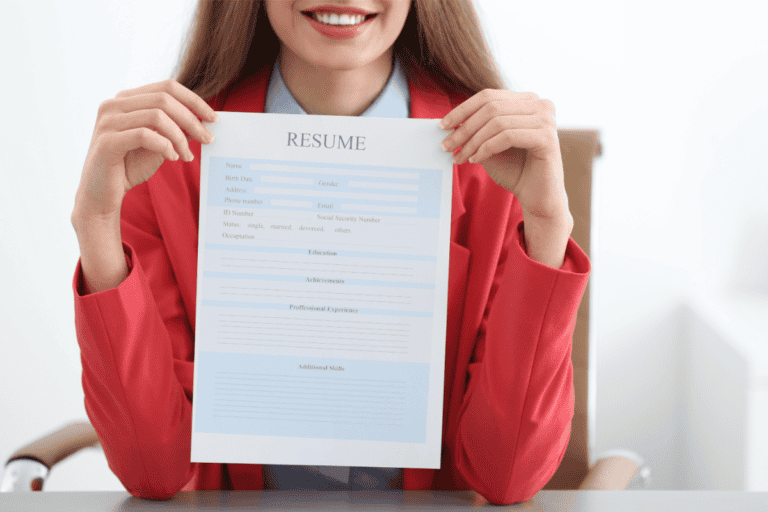Mastering the Art of the Job Interview: Strategies for Success
In today’s competitive job market, the art of the job interview has become a crucial skill for professionals seeking career advancement. Mastering the intricacies of a successful interview requires a strategic approach that encompasses thorough preparation, effective communication, and confident presentation.
Aspiring candidates must navigate through a myriad of factors, including understanding the company’s culture, researching the interviewer, and effectively communicating their value proposition. These strategies are pivotal in setting oneself apart from other candidates and securing the desired job opportunity.
Key Takeaways
- Thoroughly research the company and interviewer to establish a connection and demonstrate genuine interest.
- Craft a concise and compelling elevator pitch that highlights your key skills, experiences, and accomplishments.
- Familiarize yourself with the STAR Method to effectively answer behavioral interview questions.
- Demonstrate your accomplishments and measurable impact by quantifying results and sharing relevant examples.
Understanding the Company and Role
To succeed in a job interview, it is essential to thoroughly understand the company and the role for which you are applying. Researching the company’s culture and values is crucial in demonstrating your genuine interest in becoming a part of the organization. Understanding the company’s mission, vision, and core values will not only help you align your responses with the company’s ethos but will also allow you to assess whether the company is the right fit for you.
Equally important is comprehending the job responsibilities associated with the role. Carefully review the job description to grasp the key duties and requirements. This understanding will enable you to articulate how your skills and experiences make you a suitable candidate for the position. Moreover, it allows you to ask insightful questions during the interview, demonstrating your proactive approach and genuine interest in the role.
Researching the Interviewer
Researching the interviewer can provide valuable insights that can help in establishing a rapport and making a positive impression during the interview. Understanding the interviewer’s background, common interests, and professional connections can provide a basis for meaningful conversation and help in showcasing relevant skills and experiences.
This knowledge can also demonstrate a proactive and thoughtful approach to the interview process.
Interviewer’s Background
Before attending a job interview, it is beneficial to conduct research on the interviewer’s background to gain insights that may inform your approach during the interview. Understanding the interviewer’s perspective can provide valuable information about their professional experiences, which can help in building rapport and establishing a connection during the interview.
By researching the interviewer’s background, you can uncover commonalities such as shared career paths, professional interests, or mutual connections, which can be used to establish a positive and engaging dialogue. Additionally, knowing about the interviewer’s professional achievements or any recent publications can demonstrate your genuine interest in their work and can be used as a conversation starter.
This proactive approach can not only help in building rapport but also create a favorable impression of your preparation and attention to detail.
Common Interests
Upon delving into the interviewer’s background, it is advantageous to uncover shared professional interests and accomplishments that can be leveraged to foster a meaningful connection during the interview. This can help create a positive and lasting impression.
When researching the interviewer, pay attention to the following:
- Shared Hobbies and Activities: Identifying common passions or similar hobbies can provide an excellent conversation starter and help in building rapport.
- Mutual Interests: Finding mutual interests, whether it’s a shared love for a particular industry trend, a similar career trajectory, or a common professional achievement, can help establish a sense of camaraderie.
- Networking Connections: Discovering any networking connections or shared professional affiliations can demonstrate a mutual understanding of the industry and potentially create a sense of familiarity.
- Community Involvement: Identifying shared involvement in community or charitable activities can showcase shared values and interests outside the professional realm.
Professional Connections
In the process of preparing for a job interview, it is essential to uncover shared professional interests and accomplishments that can be leveraged to foster a meaningful connection, a practice that extends to researching the interviewer’s professional connections and background.
Understanding the professional network of the interviewer can provide valuable insights into their work style, values, and potential points of mutual interest. When researching the interviewer’s professional connections, it is important to do so with networking etiquette in mind, respecting boundaries and privacy.
Building rapport based on common connections or shared experiences can greatly enhance the interview process. By demonstrating knowledge of the interviewer’s professional background and connections, candidates can show genuine interest and initiative, making a positive impression and increasing the likelihood of a successful interview.
Crafting Your Elevator Pitch
Crafting an effective elevator pitch is essential for making a strong first impression during a job interview.
This concise and compelling introduction should highlight your key skills, experiences, and accomplishments.
Delivery tips such as maintaining eye contact, speaking clearly, and projecting confidence can further enhance the impact of your pitch.
Pitch Essentials
An effective elevator pitch is an essential tool for succinctly communicating your value proposition and making a lasting impression during job interviews. Crafting a compelling elevator pitch involves honing in on your personal branding and communication skills.
To ensure your elevator pitch resonates with potential employers, consider the following essentials:
- Clarity: Clearly articulate who you are, what you do, and what sets you apart.
- Conciseness: Keep your pitch brief and to the point, capturing the listener’s attention without overwhelming them with excessive information.
- Impact: Highlight your key achievements and how they align with the employer’s needs, demonstrating the value you can bring to the role.
- Practice: Rehearse your pitch to convey confidence and authenticity, allowing you to deliver it seamlessly during interviews.
Delivery Tips
To effectively deliver your elevator pitch, it is crucial to focus on engaging the listener and conveying your value proposition succinctly and persuasively. Body language and vocal tone play a pivotal role in capturing the listener’s attention.
Maintain good posture, make eye contact, and use hand gestures purposefully to appear confident and engaging. Your vocal tone should be clear, enthusiastic, and well-modulated to convey conviction. Confidence building is essential; believe in the value you bring to the table, and let that confidence shine through in your delivery.
Additionally, incorporating storytelling into your pitch can make it more memorable and impactful. Use real-life examples to illustrate your achievements and skills.
Mastering Behavioral Interview Questions
Successfully navigating behavioral interview questions requires a thorough understanding of how past experiences and actions can demonstrate one’s qualifications and capabilities for a prospective role. Behavioral interview techniques and preparation are essential in mastering this type of interview. Here are some key strategies to help candidates effectively tackle behavioral interview questions:
- Understand the STAR Method: Familiarize yourself with the Situation, Task, Action, and Result framework to structure your responses to behavioral questions.
- Prepare Relevant Examples: Identify specific instances from your past experiences that highlight skills such as problem-solving, leadership, teamwork, and conflict resolution.
- Quantify Achievements: Provide quantifiable results or outcomes from your previous roles to add credibility and impact to your responses.
- Practice and Feedback: Rehearse your responses to common behavioral questions, either with a trusted mentor or through mock interviews, to receive constructive feedback and refine your answers.
When answering behavioral questions, examples should be concise, relevant, and demonstrate the candidate’s ability to handle challenges and contribute to the prospective role. By mastering these techniques and approaches, candidates can effectively showcase their qualifications and suitability for the job during behavioral interviews.
Showcasing Your Accomplishments
When preparing for a job interview, it’s essential to effectively showcase your accomplishments.
Highlighting notable achievements, demonstrating measurable impact, and illustrating successful projects are key components in demonstrating your value as a candidate.
Highlighting Notable Achievements
Showcasing your notable achievements in a job interview can significantly enhance your candidacy and leave a lasting impression on the interviewer. To effectively highlight your accomplishments, consider the following strategies:
- Quantify Results: Use specific numbers or percentages to demonstrate the impact of your achievements, such as ‘increased sales by 30%’ or ‘led a team that reduced costs by $100,000.’
- Relevant Examples: Share achievements that directly relate to the job requirements, showing how your expertise aligns with the role.
- Recognition and Awards: Mention any professional accolades, awards, or recognition received for your work.
- Problem-Solution Approach: Discuss challenges you faced, the actions you took, and the positive outcomes achieved, emphasizing your problem-solving skills and resilience.
Demonstrating Measurable Impact
Demonstrating measurable impact through the effective communication of your accomplishments is a vital component of a successful job interview. Quantifying the impact of your work helps potential employers understand the tangible results you can deliver. By showcasing specific numbers and outcomes, you can provide evidence of your contributions and the value you can bring to the new role. To effectively communicate your measurable impact, consider using a STAR (Situation, Task, Action, Result) framework to highlight your achievements. Here’s an example of how to showcase your accomplishments:
| Situation | Task | Action | Result |
|---|---|---|---|
| Identified a | Developed a | Implemented a | Increased sales by 30% |
| strategic market | new marketing | targeted | within the first quarter |
| opportunity | campaign | promotional | of its implementation |
Illustrating Successful Projects
To further emphasize your qualifications and make a lasting impression during a job interview, it is essential to illustrate successful projects by effectively showcasing your accomplishments. Utilizing project examples and success stories can vividly demonstrate your capabilities and potential value to a prospective employer.
When sharing illustrative anecdotes, it’s crucial to focus on past wins and the specific impact your contributions made. To effectively showcase your accomplishments, consider the following strategies:
- Select projects that align with the prospective employer’s needs and demonstrate relevant skills.
- Clearly articulate the goals, challenges, and your role in driving the success of each project.
- Quantify the impact whenever possible with metrics such as cost savings, revenue growth, or efficiency improvements.
- Use visual aids or portfolios to provide tangible evidence of your contributions.
Navigating Tricky Situational Questions
Navigating through tricky situational questions during a job interview requires a strategic approach and the ability to think critically under pressure. When faced with tough situational questions, it’s essential to be well-prepared and to respond with confidence and clarity. Here are some behavioral interview tips and strategies to help you navigate through challenging situational questions:
| Behavioral Interview Tips | Preparation |
|---|---|
| Research the Company | Familiarize yourself with the company’s values, culture, and recent projects. This will allow you to tailor your responses to align with the organization’s goals. |
| Practice with Mock Interviews | Simulate the interview experience with a trusted friend or mentor. Practicing responses to situational questions will help you feel more confident and articulate during the actual interview. |
| Use the STAR Method | When responding to situational questions, use the STAR method (Situation, Task, Action, Result) to structure your answers effectively. This method helps you provide specific examples and outcomes from past experiences. |
Communicating Your Value Proposition
Effectively communicating your value proposition is crucial in demonstrating your unique strengths and contributions to potential employers. During a job interview, it’s essential to convey your value proposition clearly and confidently.
Here are four key strategies to help you effectively communicate your value proposition:
- Understand Your Unique Value: Clearly articulate what sets you apart from other candidates. Highlight your specific skills, experiences, and achievements that make you a valuable asset to the potential employer.
- Use Concrete Examples: Support your value proposition with specific examples from your previous work experiences. This demonstrates how your skills and contributions have made a positive impact in previous roles.
- Show Enthusiasm: Display genuine enthusiasm for the role and the company. Expressing excitement about the opportunity conveys your passion for the work and your commitment to making a meaningful contribution.
- Build Confidence: Projecting confidence in your value proposition is essential. Maintain good posture, make eye contact, and speak clearly and assertively to convey confidence in your abilities and potential contributions.
Handling Salary and Benefit Discussions
After effectively communicating your value proposition, the next crucial step in the job interview process involves navigating the discussions around salary and benefits with professionalism and tact. Negotiating a fair and competitive salary is a critical aspect of securing a new position, and understanding effective negotiation strategies can significantly impact the outcome. Additionally, understanding benefit packages and how to discuss them can further enhance your overall compensation package.
| Negotiation Strategies | Benefit Packages |
|---|---|
| Research market rates for similar roles to justify your salary expectations | Understand the full spectrum of benefits offered, including healthcare, retirement plans, and other perks |
| Clearly articulate your skills, experience, and achievements to demonstrate your value | Inquire about additional benefits such as professional development opportunities, remote work options, or flexible scheduling |
| Be prepared to provide specific examples of your contributions and how they have positively impacted previous employers | Assess the overall value of the benefits package in relation to the salary being offered |
| Remain professional and respectful throughout the negotiation process | Consider the long-term benefits and impact of each component of the benefits package |
| Have a clear understanding of your bottom line and be prepared to walk away if the offer does not meet your needs | Be prepared to ask clarifying questions about any benefit offerings to ensure a comprehensive understanding |
Closing the Interview Strongly
Concluding a job interview with a strong and memorable impression is essential to leave a lasting positive impact on the prospective employer. To close the interview strongly and leave a lasting impression, consider the following strategies:
- Summarize Your Key Points: Take a moment to summarize your key skills, experiences, and qualifications that make you the ideal candidate for the position. Emphasize how your background aligns with the company’s needs and goals.
- Ask Thoughtful Questions: Show your interest in the role and the company by asking insightful questions about the company culture, team dynamics, or specific projects. This demonstrates your enthusiasm and commitment to the potential role.
- Express Gratitude: Thank the interviewer for the opportunity to discuss the position and express your enthusiasm about the possibility of joining the team. A genuine expression of appreciation can leave a positive impression.
- Reiterate Your Interest: Use your closing remarks to reiterate your enthusiasm for the role and your confidence in your ability to contribute to the organization’s success. This reaffirms your interest and commitment to the position.
Following Up Effectively
Having concluded the job interview with a strong and memorable impression, the next essential step is to effectively follow up in a manner that reinforces your enthusiasm and professionalism. Effective follow-up is a critical component of post-interview etiquette and can significantly impact the hiring decision.
Sending a personalized thank-you email within 24 hours of the interview is a standard practice that demonstrates appreciation for the opportunity and reaffirms your interest in the position. In the email, express gratitude for the chance to discuss the role, highlight a specific aspect of the interview that resonated with you, and reiterate your enthusiasm for contributing to the organization. Additionally, use this opportunity to address any key points or qualifications that you may have omitted during the interview. If appropriate, inquire about the timeline for the hiring decision to gain clarity on the next steps.
Furthermore, consider sending a handwritten thank-you note to the interviewer, particularly if the organization values traditional gestures of appreciation. The follow-up communication should be concise, well-crafted, and reflective of your professionalism, leaving a lasting positive impression on the interviewers.
Conclusion
In conclusion, mastering the art of the job interview requires thorough preparation, confidence, and effective communication. By understanding the company and role, researching the interviewer, and crafting a compelling elevator pitch, candidates can position themselves for success.
Mastering behavioral interview questions, showcasing accomplishments, and effectively communicating value proposition are essential. Handling salary and benefit discussions, closing the interview strongly, and following up effectively are also crucial steps in securing the desired position.
Ultimately, mastering these strategies will greatly enhance one’s chances of interview success.







